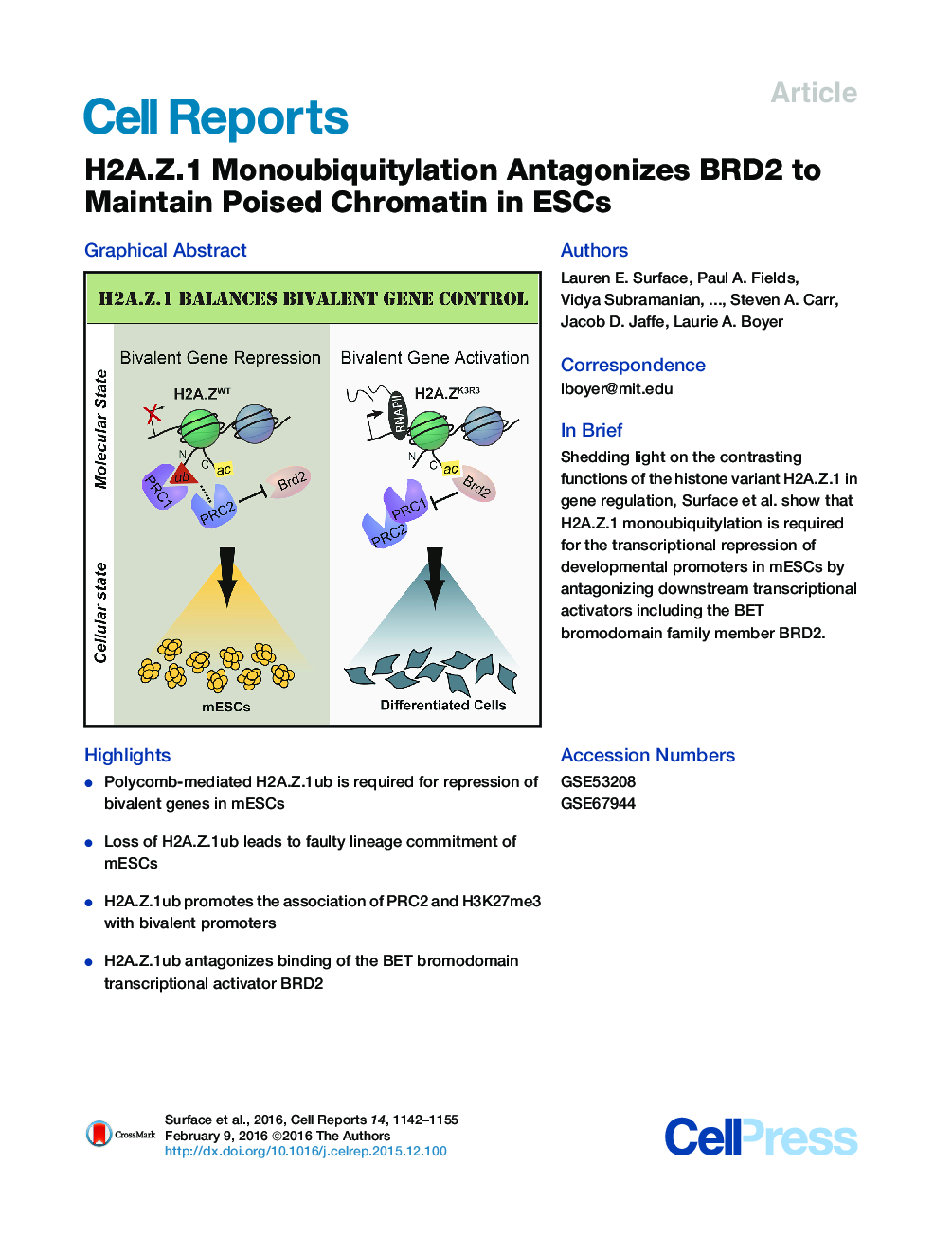| Article ID | Journal | Published Year | Pages | File Type |
|---|---|---|---|---|
| 2040529 | Cell Reports | 2016 | 14 Pages |
•Polycomb-mediated H2A.Z.1ub is required for repression of bivalent genes in mESCs•Loss of H2A.Z.1ub leads to faulty lineage commitment of mESCs•H2A.Z.1ub promotes the association of PRC2 and H3K27me3 with bivalent promoters•H2A.Z.1ub antagonizes binding of the BET bromodomain transcriptional activator BRD2
SummaryHistone variant H2A.Z occupies the promoters of active and poised, bivalent genes in embryonic stem cells (ESCs) to regulate developmental programs, yet how it contributes to these contrasting states is poorly understood. Here, we investigate the function of H2A.Z.1 monoubiquitylation (H2A.Z.1ub) by mutation of the PRC1 target residues (H2A.Z.1K3R3). We show that H2A.Z.1K3R3 is properly incorporated at target promoters in murine ESCs (mESCs), but loss of monoubiquitylation leads to de-repression of bivalent genes, loss of Polycomb binding, and faulty lineage commitment. Using quantitative proteomics, we find that tandem bromodomain proteins, including the BET family member BRD2, are enriched in H2A.Z.1 chromatin. We further show that BRD2 is gained at de-repressed promoters in H2A.Z.1K3R3 mESCs, whereas BRD2 inhibition restores gene silencing at these sites. Together, our study reveals an antagonistic relationship between H2A.Z.1ub and BRD2 to regulate the transcriptional balance at bivalent genes to enable proper execution of developmental programs.
Graphical AbstractFigure optionsDownload full-size imageDownload as PowerPoint slide
